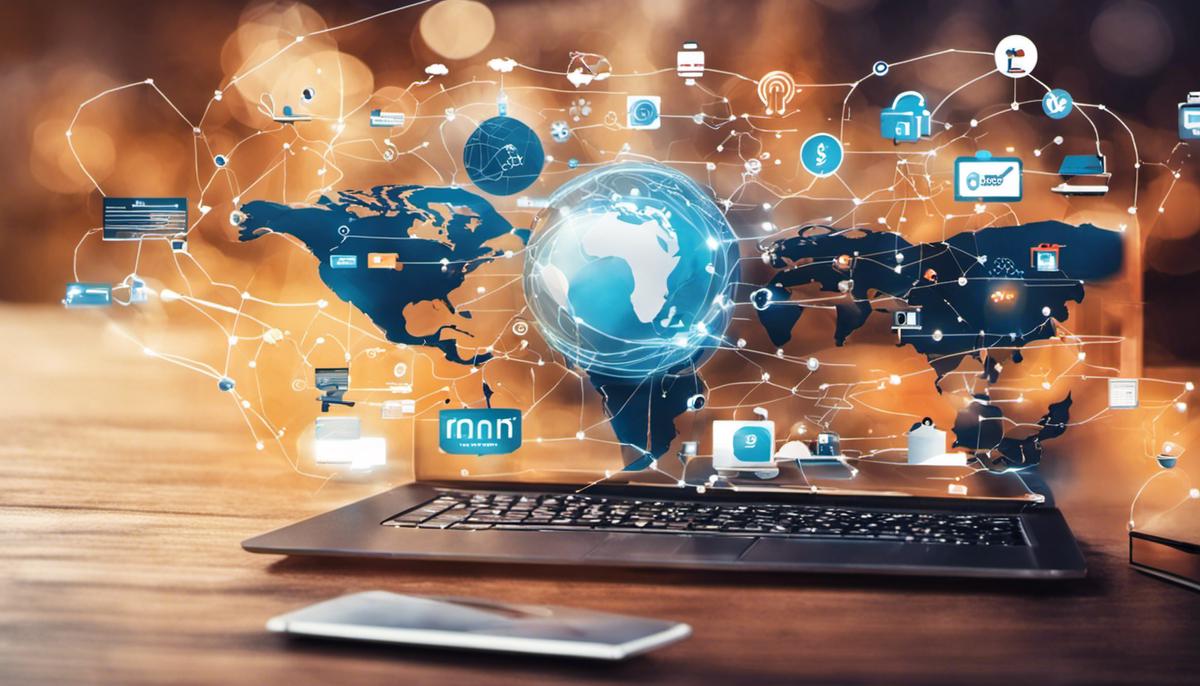In the fast-paced and ever-evolving world we live in, staying cognizant of the latest trends is a must to keep ourselves abreast with the times. From profound digital transformation in businesses triggered by unexpected disruptions to an upswing in consciousness regarding health and environment, stimulating the adoption of plant-based diets and lifestyles; the world is experiencing a substantial shift. Additionally, there is an increasing move toward sustainable and minimalistic living amidst the prevailing era of unrestricted consumption. This reflects a change in consumer behavior patterns, prevailing over realms of fashion, home decors, and more.
The Rise of E-Commerce
With people forced to stay at home during the lockdown, online shopping has seen a remarkable boom. In the United States, e-commerce sales grew by over 30% in 2020, according to data from the US Department of Commerce. Companies are rapidly digitizing their operations and capitalizing on the surge in online sales, with social media platforms also launching features to facilitate easy online shopping.
Telehealth Takes the Center Stage
Telehealth is another area that benefited significantly from the digital shift. With hospitals overwhelmed and people avoiding non-essential visits, telehealth became the go-to solution. Patients can now consult doctors, refill prescriptions, and even get therapy sessions through video calls. Healthcare providers have integrated AI to streamline appointments, manage patient records, and predict future health trends.
Remote Learning: The New Normal
The sudden closure of educational institutions worldwide led to immediate changes in teaching methods. Tools for online learning, previously being gradually adopted, became a necessity overnight. Through virtual classrooms, interactive platforms, and digital textbooks, students continued their education from the safety of their homes.
Artificial Intelligence and Machine Learning
Even though Artificial Intelligence and Machine Learning are not new trends, they are playing a major role in the digital transformation of businesses. Companies are leveraging these advancements to support decision-making processes, predicting market trends, enhancing customer experience, and creating more efficient work processes. Through AI and ML, businesses are not only surviving the current disruption but also preparing for future challenges.
The Pivotal Role of Cybersecurity
Broadly, Cybersecurity has taken the front seat. With increased digitization, businesses are a bigger target for cyber threats. Organizations are investing in cybersecurity measures to protect sensitive data and maintain customer trust. The demand for cybersecurity professionals is skyrocketing, leading to more learning and job opportunities in this sector.
Flexible Working Models
With the shift towards remote working, companies are re-evaluating the need for a physical workspace. Many organizations are maintaining a blend of in-office and remote work, leading to a more flexible and efficient working model. This shift is not only cost-effective but also allows businesses to tap into a broader talent pool outside their geographical boundaries.
Cloud Computing
Finally, Cloud computing is becoming essential for businesses. Through cloud services, companies can ensure the availability and scalability of their digital platforms. Companies are now more open to using public, private, or hybrid cloud solutions, depending on their specific requirements for data security, cost-effectiveness, and operational efficiency.

Plant-Based Diet and Lifestyle
Rise of Veganism and Plant-Based Diets
With an increasing emphasis on health and sustainability, more and more people are turning to veganism and plant-based diets. Such diets, which exclude all animal products, offer an abundance of health benefits. Research suggests that plant-based diets can lower the risk of heart diseases, obesity, diabetes, and certain types of cancer. They help maintain a healthy weight and can even lead to a longer life expectancy.
Vegan Options in Restaurants
The trend of adopting veganism and plant-based diets isn’t just restricted to individuals and their homes. Even the food industry is catching up. Fast-food giants and gourmet restaurants alike are increasingly offering plant-based options to cater to the growing demand. From vegan burgers and pizzas to plant-powered tacos, there’s a plant-based alternative for almost every popular food item.
Cruelty-Free Fashion
The shift towards a vegan lifestyle isn’t just impacting our plates, it is reforming our wardrobes too. The fashion industry, notorious for its environmental impact and inhumane practices, is now seeing a shift towards cruelty-free, vegan materials. Leather alternatives made from cacti, mushrooms, and pineapples are gaining popularity. These alternatives are not only cruelty-free but also sustainable, creating new standards for ethical fashion.
A Change Beyond Diets
Veganism is more than a dietary choice – it’s a lifestyle shift that promotes a more compassionate and sustainable world. From the food we eat to the clothes we wear, every aspect of our lives can reflect this paradigm shift. While health and environment are primary driving factors, the desire for a more equitable world is also a strong motivator. As this trend expands, veganism and plant-based diets are reshaping our world one meal at a time.

Photo by jonathanpielmayer on Unsplash
Sustainability and Minimalistic Living
Sustainable Fashion Choices
A prominent sector witnessing a shift towards sustainability and minimalism is the fashion industry. As individuals grow more aware of the negative impacts of fast fashion, they are pivoting towards more conscious, sustainable options. Brands are now designing clothing with recycled materials, organic fibers, and plant-based dyes. Consumers are leaning towards timeless designs that can be worn year-round, ultimately reducing the amount of waste produced and the frequency at which clothes are replaced.
Green Home Interiors
Home decor and interiors have not been left untouched by this trend. The rise of minimalistic living has led to uncluttered spaces that are pleasant to look at and easy to maintain. The use of natural materials like wood, cork, and bamboo is on the rise. People are choosing energy-efficient appliances and swapping traditional lighting fixtures with LED lights. The design gives importance to functionality over aesthetic, upholding the principle of ‘less is more.’
Eco-friendly Packaging
Companies are shifting towards eco-friendly packaging to minimize waste and reduce their carbon footprint. Traditional plastic packaging is being swapped for cardboard, recycled paper, and biodegradable options. This shift is not only being appreciated but demanded by the eco-conscious consumers.
Quality Over Quantity
The minimalistic lifestyle has brought back the focus on quality over quantity. Instead of purchasing a high volume of low-quality goods, consumers are investing in products that are durable and have a lower environmental impact. This trend can be observed in multiple sectors, including furniture, clothing, and electronics.
Less is More Mantra
The ‘less is more’ mantra prevalent in the minimalistic living trend encourages individuals to declutter their lives, only keeping the things they really need. This helps to reduce overconsumption and promotes a cleaner, more organized living space. It also pushes forward the concept that happiness and fulfillment cannot be derived purely from material possessions.
Conscious Consumerism
With sustainability becoming a key consideration, conscious consumerism is now expanding. Consumers today are not just focused on the final product but are also interested in understanding the origin and lifecycle of goods. This shift in consumer behavior is pressuring companies to adopt transparent and ethical practices.

The trends of current times represent an overarching movement toward a more digital, sustainable, and health-focused world. These shifts are more than transient fads, they represent deep-seated changes in societal attitudes and behaviors. The wave of digital transformation in businesses, the rising adoption of plant-based diets and lifestyle, and the inclination toward sustainability and minimalist living are intriguing representatives of our evolving society. As we navigate these trends, we can look forward to a future that is digitally connected, environmentally aware, and health-focussed.
